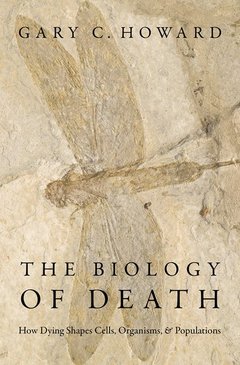The Biology of Death How Dying Shapes Cells, Organisms, and Populations
Langue : Anglais
Auteur : Howard Gary C.

How does death help us understand the living? Death is more than the last event of life; it is interwoven into our growth, development, protection against disease, and more. It influences the direction of entire species via the cycle of a lifespan, and it involves asking many fascinating questions. How do we differentiate between life and death, though? How do we know when a person, animal, or cell is really dead? How much grey area is there in the science? Why do we age? Can we do anything about it? Scientifically, there's much we can learn about a living thing from its cells. In all living things, cells seem to carry "death" gene programs. Some living organisms have created systems to use these to their own advantage. Humans, for example, use the death of specific cells to hone our immune system and to give us fingernails and hair. Perhaps the most dramatic use occurs during the metamorphosis of insects and frogs. Even single-celled organisms use "quorum sensing" to eliminate some cells to ensure the overall survival of their colony in harsh environments. Thus, there is more to death than just dying. This latest book from science writer Gary C. Howard ties together the many ways that death helps us understand life. He synthesizes the involvement and relation of cells, tissues, organisms, and populations, explaining what happens at the end of life. Between discussions about popular topics such as the ethics of extending life and cell regeneration, Howard also answers fascinating questions about life and death. The resulting book examines how the end of life is determined and what we can learn from this process.
Gary C. Howard was a science editor for Gladstone Institutes for many years until his recent retirement. He received a BA in zoology and an MS in biology from West Virginia University and a PhD in biological sciences from Carnegie Mellon University. He completed postdoctoral fellowships at Harvard University and the Johns Hopkins University. Before joining Gladstone, he worked for 11 years at two small biotech companies. He continues to edit and write in the San Francisco Bay Area.
Date de parution : 01-2022
Ouvrage de 304 p.
24.1x16.3 cm
Thèmes de The Biology of Death :
© 2024 LAVOISIER S.A.S.


